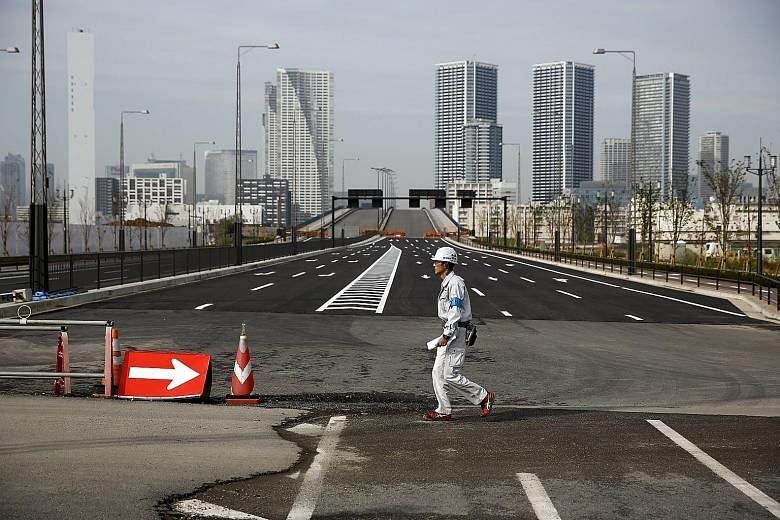TOKYO • Japan yesterday published a string of mostly weak data, the first major figures since news that the world's No. 3 economy had slipped back into recession.
A key inflation gauge showed prices fell last month from a year ago, while spending by households also dropped in a double blow for Prime Minister Shinzo Abe's high-profile growth blitz, dubbed Abenomics.
The weak figures came despite signs of a tight labour market, with the headline unemployment rate at a two-decade low of 3.1 per cent, down from 3.4 per cent in September. But even these numbers highlight a growing red flag for the economy - the rise of part-time work at lower wages.
"Employment is rising, but those jobs are mostly part-time," said Dai-ichi Life Research Institute's chief economist Yoshiki Shinke.
"The supply/demand balance for stable, permanent positions is not firm."
Earlier this month, official figures showed Japan's gross domestic product shrank 0.2 per cent in the July to September period, or an annualised contraction of 0.8 per cent, marking the second straight quarterly decline. In response to the recent weakness, Mr Abe yesterday ordered his government to draft an extra stimulus budget.
The economy dipped into a brief recession last year after consumers tightened their belts following an increase in Japan's consumption tax, which dealt a blow to signs that Mr Abe's bid to spur the once-stellar economy was working.
That downturn spurred the Bank of Japan (BoJ) to sharply increase its already massive bond-buying programme, effectively printing money to boost lending.
While Tokyo's efforts sharply weakened the yen - beefing up firms' profits - and stoked a stock market rally, its impact on an economy beset by years of deflation has been less convincing.
Daiwa Institute of Research economist Satoshi Osanai said Japan's economy was "out of gear", with most of Abenomics' benefits limited to the country's boardrooms.
"That's why consumption is still weak, even though employment got better," Mr Osanai added.
"(Any) economic improvement remains at the corporate level and has not spread to other areas, such as the household sector."
Yesterday's figures showed that core inflation, which excludes volatile fresh food prices, fell 0.1 per cent last month, marking the third consecutive monthly decline.
Falling petrol prices were the key culprit in pulling the index down, the internal affairs ministry said.
Meanwhile, household spending for the month fell 2.4 per cent, underscoring consumer caution.
The latest figures will turn attention back to the BoJ ahead of its policy meeting next month to see whether it adds to its 80 trillion yen (S$918 billion) annual stimulus programme.
AGENCE FRANCE-PRESSE

